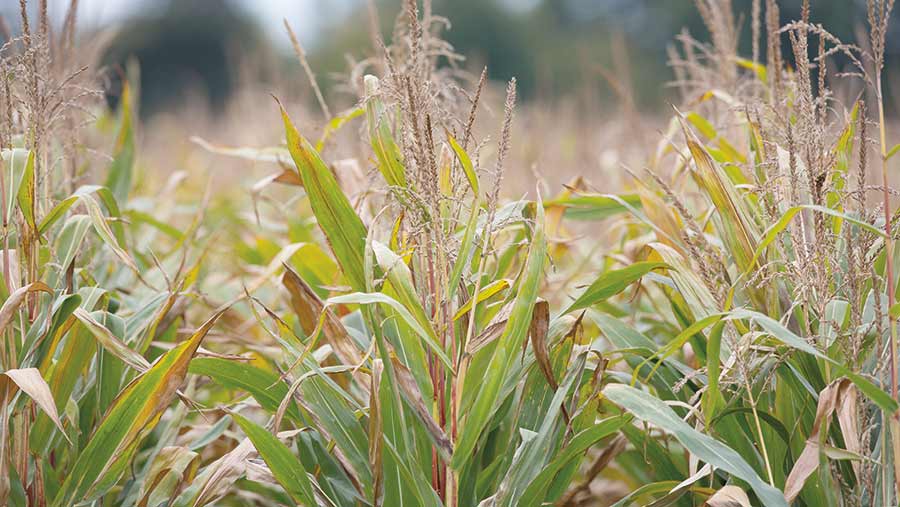VAT on let land v crops – is there a difference?
 © Tim Scrivener
© Tim Scrivener Whether it’s a legal, tax, insurance, management or land issue, Farmers Weekly’s experts can help. Here,Clare Hulme, associate director, Duncan & Toplis, offers advice on the difference between VAT on let land and crops.
Q Is there any distinction between the VAT treatment of land on an annual let for, say, growing maize whether for milk or power production, or maize for shooting?
A This is an interesting question and one on which you will find little guidance when searching both the internet and legislation.
There are currently three rates of VAT in the UK:
- Standard 20% – applicable to most goods and services
- Reduced 5% – applicable to some goods and services, such as home energy
- Zero 0% – applicable to goods and services such as basic foodstuffs
In addition to the above three rates, some supplies are exempt from VAT, such as supplies of land and property.
See also: Business Clinic – how would solar lease affect IHT reliefs?
The ability to reclaim VAT if you are VAT registered is dependent on the type of supplies that you’re making. If you make supplies that are standard-, reduced- or zero-rated you will be able to reclaim all VAT on inputs relating to these supplies.
If you are making solely exempt supplies, i.e. renting properties, you will not be able to reclaim any input VAT that is directly attributable to these supplies.
However if you are making a mix of standard, reduced, zero and exempt supplies you will be considered to be partially exempt for VAT.
You will then have to perform a Partial Exemption (PE) calculation when preparing each VAT return and an annual PE calculation for the return that includes the month of March, which adds to the VAT complexities.
It is the general assumption that VAT for farmers is a simple matter, as all their outputs are zero-rated and that this means that they have the ability to reclaim all input VAT incurred.
Unfortunately, this is no longer the case. Farmers are having to diversify into new crops that are no longer always intended as food for human or animal consumption – for example biofuels.
Other activities, such as property and land rental, storage facilities and so on, all come with their own VAT rules and intricacies.
In very general terms, VAT legislation considers the letting of land to be an exempt supply for VAT, which means that no VAT is charged on the rent, but it also means that the farmer will not be able to reclaim any input VAT on any costs incurred to maintain this land.
The supply of land is one of the more unusual areas of VAT law, which allows the VAT rate to be changed by choosing to tax the supply at the standard rate of 20%.
This is known as the Option to Tax but is a subject all of its own and one for another day!
If as a farmer you were growing these crops and selling them, the end use of the product would affect the rate of VAT that is applied to these outputs.
Maize grown for feed for livestock would be a zero-rated supply. Maize grown for power production would be standard-rated.
As I have previously stated, the general rule is that the letting of land is exempt for VAT but the interpretation of the agreements and services provided may change the VAT status.
The VAT status of land let for game cover for shooting will depend on the terms of the agreement to determine if this is a supply of land or a supply of shooting rights.
As the agreements between the farmer and shoot can vary significantly, there is no simple answer. It is recommended that advice be sought from a specialist agricultural VAT adviser in each instance.
Do you have a question for the panel?
Outline your legal, tax, finance, insurance or farm management question in no more than 350 words and Farmers Weekly will put it to a member of the panel. Please give as much information as possible.
Send your enquiry to Business Clinic, Farmers Weekly, RBI, Quadrant House, The Quadrant, Sutton, Surrey SM2 5AS.
You can also email your question to fwbusinessclinic@rbi.co.uk.

